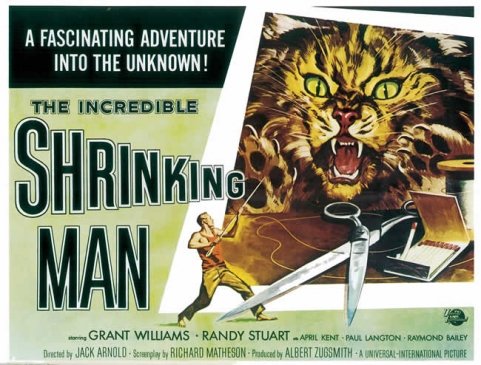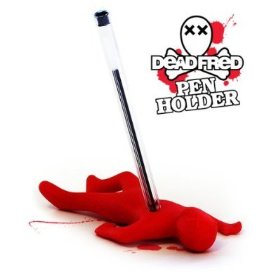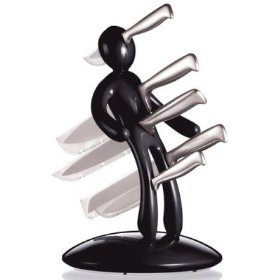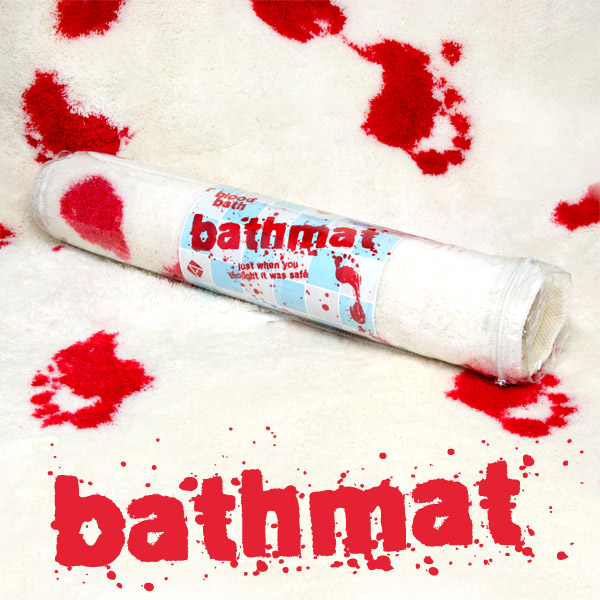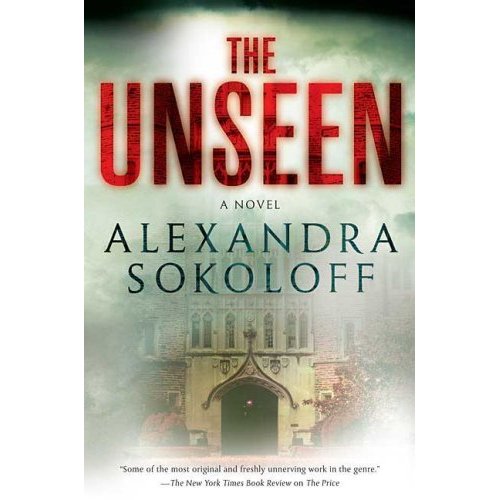By Cornelia Read
I apologize for posting so late–it’s been a circus of a week. This is an essay I wrote about ten years ago. I’ve been thinking a lot about the subject matter lately, for reasons I plan to go into in my next post here in two weeks, so I’d like to start out with this piece as background.
This is a review of a book I have not read.
The book in question, titled The Empty Fortress, was written by Bruno Bettelheim. I bought a copy of it in hard cover two years ago, and it sits on the bookshelf in the living room, in a stretch of books on the same subject. All the rest of these are well-thumbed, some I know nearly by heart. The Empty Fortress, however, has remained untouched by me.
I plan to read it, but I cannot utter the more familiar phrase that “I would like to.” I detest this book and its author so intensely, in fact, that I could only bring myself to buy the book used. I had to be certain that no money of mine would benefit even Bettelheim’s estate, now that he is, thank God, deceased.
I like to think of myself as a kind person, one capable of forgiveness and mercy and compassion. For this man, however, I have nothing but unadulterated contempt and hatred. I am, in fact, sorry that he survived the Nazi concentration camps. This is a shocking thing to admit, even to myself, but in his subtle, remorseless way, Bettelheim took all that was most foul and reprehensible about Nazi cruelty and twisted it for his own use against children, families, and, most especially, women in America for decades.
Before I had children of my own, I knew of Bettelheim in a vague way–his name was familiar to me as someone who merited inclusion in the liberal arts canon. He is today perhaps best known as the author of The Uses of Enchantment, in which he attempts something of a Freudian deconstruction of well-known children’s stories such as Little Red Riding Hood.
As a parent, however, I feel that this man is no less deserving of my disgust than is the author of Protocols of the Elders of Zion. This is because Bettelheim made it his life’s work to publicly accuse me and thousands of women like me of destroying our children with emotional cruelty so intense that we make Medea look like Donna Reed. In his works, Bettelheim has proclaimed that I have all the maternal qualities of a Nazi concentration camp guard, an infanticidal Shakespearean king, and a child-cannibal witch.
I beg to differ.
Five years ago, I gave birth to healthy twin girls, Grace and Lila. I remember being constantly amazed in that first year, as they grew and tested out the world, at how many thousands upon thousands of little things must go right in order for human beings to become fully realized. Fingernails grow to perfect curves, the heart is formed to beat just so, limbs unfurl and become stronger by the day, and little by little, the brain comes online, discovering itself and all around it.
It was so fascinating to see how different each of the girls was from the other. Grace had thick black hair from birth, while Lila’s blonde fuzz soon fell out. Grace’s quiet, placid demeanor was most always upstaged by Lila’s demanding hunger for attention and everything new. They raced one another to master each baby milestone, so carefully checked off each month against the list from the appropriate chapter in What to Expect the First Year.
We were proud of their compliance with all the books and charts and pediatricians’ comments. “Such big, healthy babies,” carried almost exactly to term, a birth with no complications. Each girl was in a high percentile for height, for weight, for head circumference, at every checkup. Each was visible proof of our great love for them both, of our tremendous luck and the smiling favor of the universe. When I spoke with friends who were single, or having trouble with fertility, I was embarrassed by my good fortune. Two babies, after all, bursting with health… how was it that I deserved this glorious bounty? Strangers on the streets of New York would gaze adoringly into their carriage and say “God bless you” to me in hushed and reverent voices.
Looking back at their baby books, so painstakingly filled out when they were little enough that I had time for it, I see again that Lila mastered most of the developmental hurdles before Grace did: smiled, reached, rolled over, sat up, crept, crawled, stood…
The pediatrician was worried about Grace, made a few comments that she needed my attention as much as Lila, though she was quieter–Lila more agile and demanding. She said so most pointedly when she entered the examining room during one appointment to find that I had Lila standing up on the examining table, grasping my hands, while Grace lay beside her. I had been so proud that Lila had conquered gravity at such an early age, months before the books predicted, that I had wanted to show off for the doctor.
The doctor berated me for ignoring Grace, warned of dire consequences. I blushed and was on the verge of tears, thoroughly ashamed of myself.
So when Grace, at around her first birthday, started to take off, we were relieved. Twins, we supposed, took turns at being the leader, and as we relaxed, we realized we had been more worried about little Gracie than we had admitted to ourselves. She began to use words, to attract our attention to things she was doing and trying. Soon she was walking, with Lila right behind her, and the two of them played together and made one another laugh.
I remember this part, because I have video of it. There’s one scene that was so funny: the pair of them sitting in a cardboard box, the container for a case of Pampers. The two kids, aged about 15 months, are wedged in this thing knee to knee–laughing at one another and rocking the box around, then each looking up and laughing at us, inviting our attention.
I don’t like to watch this anymore, though I’ve shown it to some people since. It’s too much for me, really, because it never happened again—that the kids were equals, pals, enjoying each other. If you watch the rest of the tape, the little bits and vignettes captured from that year, you see things change, slowly, inexorably, like the way each wave breaks a touch further down the beach as the tide goes out or the sky darkens by imperceptible degrees in the evening. Perhaps it’s most like watching those old science class films of a flower blooming in fast motion, only it’s running backwards: it is Lila who is slipping out of the picture, out of her self, out of the world. She was snatched away from us as surely as the changeling babies of folklore, who are kidnapped by fairies while their parents sleep, replaced with idiot fairy babies identical in appearance.
And it happened so gradually that we didn’t notice, or maybe refused to, until a friend we hadn’t seen in months called following our visit with her and her family.
I don’t know how to tell you this, she said to my husband, but we were watching PBS last night, and there was a show on and it was about kids who were just like Lila, and it was about autism.
We were in the midst of moving East, after a stint in Colorado, and he and I talked about it long distance, as I looked for a place to live with the kids in Boston, and he wrapped up the last details of his old job. She’s crazy, we said. She’s always been a hypochondriac, remember when she said that other thing? Of course she was overreacting, she was Lila’s godmother and that’s just how she was. The only trouble, of course, was that she was right.
And thank God this woman, my dear friend, had the courage to make a nuisance of herself, because no pediatrician or nurse practitioner or anybody else ever noticed, through all the regular well baby visits and vaccinations and time spent measuring and prodding and checking during that year that my kid was being sucked out of her body. I can now spot the signs of autism in a kid after spending about a minute and half with him or her. But the first professional I spoke to about it said, as Lila lay huddled on the examining table, rubbing a piece of lint and staring off into space, “If your kid&
rsquo;s not sitting in a corner spinning plates, you have nothing to worry about.” I know she’d never be so cavalier with a parent who suspected leukemia. I remain shocked that she felt we deserved less.
I am so very grateful, though, that the majority of professionals no longer think this is a psychological disorder caused by cold, overly intellectual parents. Well, let’s not pretty it up… by mothers. The official phrase was “Refrigerator Mother,” first suggested by Leo Kanner in the early Forties, and staunchly propagated as the cause of autism for decades by none other than Bruno Bettelheim.
Bettelheim, a Viennese lumber salesman who’d studied art history at university, passed himself off as a psychologist with multiple graduate degrees when he arrived in Chicago after the Second World War.
He made his name by claiming that he knew exactly what caused autism, since he was, he claimed, an expert on the subject– this because he had seen his fellow prisoners in Nazi concentration camps “become autistic”: out of touch with the world, withdrawn, careless for their own nourishment and safety.
He knew that the only thing which could cause this appalling transformation in a child was a mother who created conditions so fearsome, so hideous, that they replicated the conditions of Auschwitz or Bergen Belsen or Theresienstadt. He called his well-received book on the subject The Empty Fortress, to drive home the “fact” that an afflicted child had to so devote every resource to defending itself against the mother, that there was nothing left within the castle walls.
“I would stress,” wrote Bettelheim, “that the figure of the destructive mother (the devouring witch) is the creation of the child’s imagination, though an imagining that has its source in reality, namely the destructive intents of the mothering person…. Throughout this book I state my belief that the precipitating factor in infantile autism is the parent’s wish that his child should not exist.”
Having anointed himself Torquemada in this latter-day Inquisition, Bettelheim was feted by the cream of his colleagues and given the directorship of The Orthogenic School for disturbed children under the auspices of the prestigious University of Chicago. And because he wrote plainly and convincingly, he popularized his misogynist ravings to such an extent that he was invited to write a child care column for The Ladies Home Journal, which he did from 1968-1973.
The impact of Bettelheim’s life and work on the families of autistic children, especially their mothers, was prolonged and cruel. As Catherine Maurice, mother of two children with autism, writes in her seminal work, Let Me Hear Your Voice:
“Months after reading the work I spoke to a vibrant woman whose daughter, now in her twenties and living in a group home, had been diagnosed in the heyday of Bettelheim’s influence and prestige. Everyone, she told me, believed him. The parents believed what the professionals told them, and the professionals believed Bettelheim. No one questioned his authority. The psychiatrist had ordered her to bring her child in for ‘analysis’ five days a week. The mother was not allowed to sit in the waiting room, so incensed with her was the doctor’s staff. The nurses and receptionists informed her that she could drop the child at the door and wait for her outside. They never looked at the mother and refused to say hello or good-bye. She had caused this terrible condition in her child, and she merited no human courtesy. She told me that many a day she had stood there–whether in sunshine, in rain, or in sleet–weeping.
“’How did you survive?’ I asked her.
“’I survived,’ she said softly. ‘Some others I know didn’t.’”
Another couple, the Pollacks, who had a son attending Bettelheim’s school, were devastated by the accidental death of their son when he was home visiting them. The boy fell through a trapdoor in a barn hayloft, where he had been playing with his brother and other children, and plummeted to his death on a concrete floor some thirty feet below.
In a meeting with Bettelheim shortly after this tragedy, they were assured by him that the death was in fact their fault. Bettelheim had warned them, he recounted, that the boy must not leave the premises of the school, despite their insistence that they share some vacation time with him as a family. Their son had so despised them, the “good doctor” explained to the grieving parents, that at the age of eight, he had committed suicide rather than further suffer their company.
Recently, the Pollacks’ second child, Dick, wrote an outstanding biography of Bettelheim–more balanced and objective than I could ever manage.
Bettelheim himself has been discredited in the years following his death, both for his physical and sexual abuse of the children placed under his care, and because his supposed academic credentials have been exposed as wholly fraudulent. But the impact of his ideas lives on like a nasty virus.
Most damaging, from my perspective, are the time and resources wasted as a result of his influence: the grant monies (from such sources as the Rockefeller and Ford Foundations) and energies of earnest graduate students hoovered up over the years by Bettelheim and his fellow charlatans. And by convincing the world that autism was a psychological disorder, a patent falsehood, Bettelheim ensured that serious research into its true causes, still unknown, would be cut off at the knees for decades.
It was not until the early seventies, in fact, that Bettelheim’s stranglehold on the field of autism research was broken, by a man named Bernard Rimland. Rimland’s fourth child, a boy, developed autism. Rimland also happened to be a respected psychiatrist. How was it, he wondered, that he and his wife had managed to raise three perfectly healthy “typically developing” children, if they were such monsters as to afflict their youngest boy with autism? When contacted by Rimland with these and other questions, Bettelheim did not deign to answer.
Rimland has since done yeoman work in the trenches of the war on autism, founding both the Autism Society of America and the Autism Research Institute. His youngest son, Mark, now in his thirties, is still ravaged by the disease. It was Mark Rimland, in fact, with whom Dustin Hoffman spent time in preparation for his portrayal of an autistic savant in the film Rainman.
Other celebrities have become very involved in fundraising and publicity for autism research. Of course, as is usually the case, their commitment is motivated by personal experience: Beverly Sills has an autistic child, as do Sylvester Stallone and Doug Flutie. Neil Young has two. As a family, we find ourselves in brilliant, if involuntary, company.
We will continue, as these parents do, to devour every bit of information we can on the topic of autism, hoping against hope that each new lead, no matter how fragile, will turn out to hold an answer for our daughter that will return her to us. We will all scour the internet and professional publications, and crowd the auditoriums when researchers and clinicians speak at conventions around the country.
I know, too, that I will read every book on autism I can get my hands on. But not The Empty Fortress. Not yet.
And I know that I am a lesser person for it, but I hope that Bruno Bettelheim is rotting in hell.
How about you ‘Ratis? Is there any book you refuse to read? Or a book you have read that really set your hair on fire and made you gnash your teeth?

